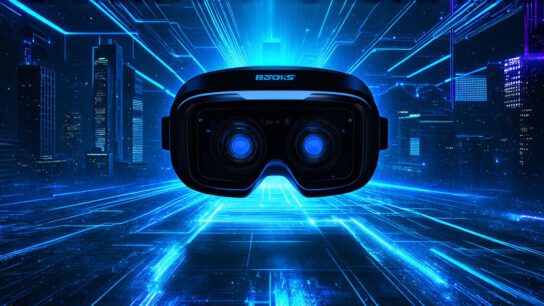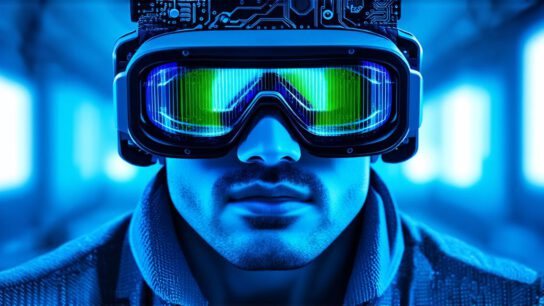Virtual reality (VR) is rapidly changing the way we interact with technology and each other. With its immersive and interactive nature, VR has the potential to revolutionize various industries such as entertainment, education, healthcare, and more. However, as VR developers, it is important to understand the impact of this technology on society and how it can be used ethically and responsibly.
The Evolution of Virtual Reality: A Brief Overview
Virtual reality technology has come a long way since its inception. The first VR systems were developed in the 1960s, but it wasn’t until the late 20th century that VR became more accessible and affordable to the general public. Today, VR is used in a variety of applications such as gaming, training, and simulation, among others.
One of the key factors driving the evolution of VR is its ability to create a highly immersive experience for users. By using sensors and software that track movement and provide real-time feedback, VR systems can make users feel like they are in a completely different environment. This has led to the development of many innovative applications that have the potential to transform our society.
The Impact of Virtual Reality on Society: A Comprehensive Guide for VR Developers
Virtual reality technology is already having a significant impact on society in various ways. Here are some examples of how VR is being used to improve people’s lives and the environment:
- Entertainment
- Education
- Healthcare
- Environmental conservation
Virtual reality has revolutionized the way we experience entertainment. With VR headsets, users can immerse themselves in a completely new world and become part of the action. This has led to the development of many new games and experiences that have captivated audiences around the world. However, as with any technology, there are concerns about the impact of VR on our mental health and well-being.
Virtual reality has the potential to revolutionize the way we learn. By creating immersive environments that simulate real-world scenarios, VR can provide students with a safe and controlled environment to practice new skills and gain knowledge in a variety of subjects.
Virtual reality has the potential to revolutionize healthcare by providing patients with new ways to manage chronic conditions and receive treatments. For example, VR can be used to create simulations of physical therapy exercises that help patients recover from injuries or illnesses.
Virtual reality has the potential to help us better understand and protect our environment. By creating immersive simulations of natural habitats, VR can provide users with a firsthand experience of the beauty and fragility of our planet. This can lead to increased awareness and appreciation for the environment and inspire people to take action to protect it.
The Ethical Considerations of Virtual Reality
As we have seen, virtual reality has the potential to transform our society in many ways. However, as developers, it is important to be aware of the ethical considerations that come with this technology.
- Privacy
- Addiction
- Safety
- Bias and discrimination
Virtual reality can collect a significant amount of data about users, including their movements, facial expressions, and even biometric information. This raises concerns about privacy and the potential for VR systems to be used for surveillance or identity theft.
Virtual reality can be addictive, leading users to spend long periods of time in virtual environments at the expense of real-world activities such as work, socializing, and self-care. This raises concerns about the impact of VR on our mental health and well-being.
Virtual reality can create a sense of disconnection from reality, leading users to act in ways that are potentially dangerous or harmful to themselves or others. This raises concerns about the impact of VR on our safety and well-being.
Virtual reality can be used to create simulations of real-world scenarios, which can perpetuate biases and discrimination if not designed carefully. For example, if a VR simulation is based on historical events or cultural norms that are biased against certain groups, it can reinforce those biases and contribute to discrimination.
Actionable Insights for VR Developers
Given the potential impact of virtual reality on society, it is important for VR developers to be aware of their responsibilities and take action to ensure that their technology is used ethically and responsibly.
- Work closely with stakeholders
- Design with user safety in mind
- Protect user privacy
- Avoid perpetuating bias and discrimination
Virtual reality has the potential to transform many industries, but it is important to work closely with stakeholders in those industries to ensure that VR is used in a responsible and ethical manner. This includes working with educators, healthcare professionals, conservation organizations, policymakers, and others to understand their needs and concerns and to develop solutions that address them.
Virtual reality can be addictive and disconnect users from reality, leading to potentially dangerous or harmful behaviors. It is important for VR developers to ensure that their systems are designed with robust safety controls in place and to provide users with clear guidance on how to use the system safely.
Virtual reality can collect a significant amount of data about users, including their movements, facial expressions, and even biometric information. It is important for VR developers to ensure that their systems are designed with robust privacy controls in place and to comply with relevant data protection laws.
Virtual reality can be used to create simulations of real-world scenarios, which can perpetuate biases and discrimination if not designed carefully. It is important for VR developers to ensure that their simulations are designed with sensitivity and cultural awareness in mind and to avoid perpetuating bias and discrimination.
Summary
Virtual reality has the potential to transform our society in many ways, but it also raises significant ethical considerations. As VR developers, it is important to be aware of these considerations and take action to ensure that their technology is used ethically and responsibly. By working closely with stakeholders, designing with user safety in mind, protecting user privacy, and avoiding perpetuating bias and discrimination, VR developers can help create a brighter future for all of us.



